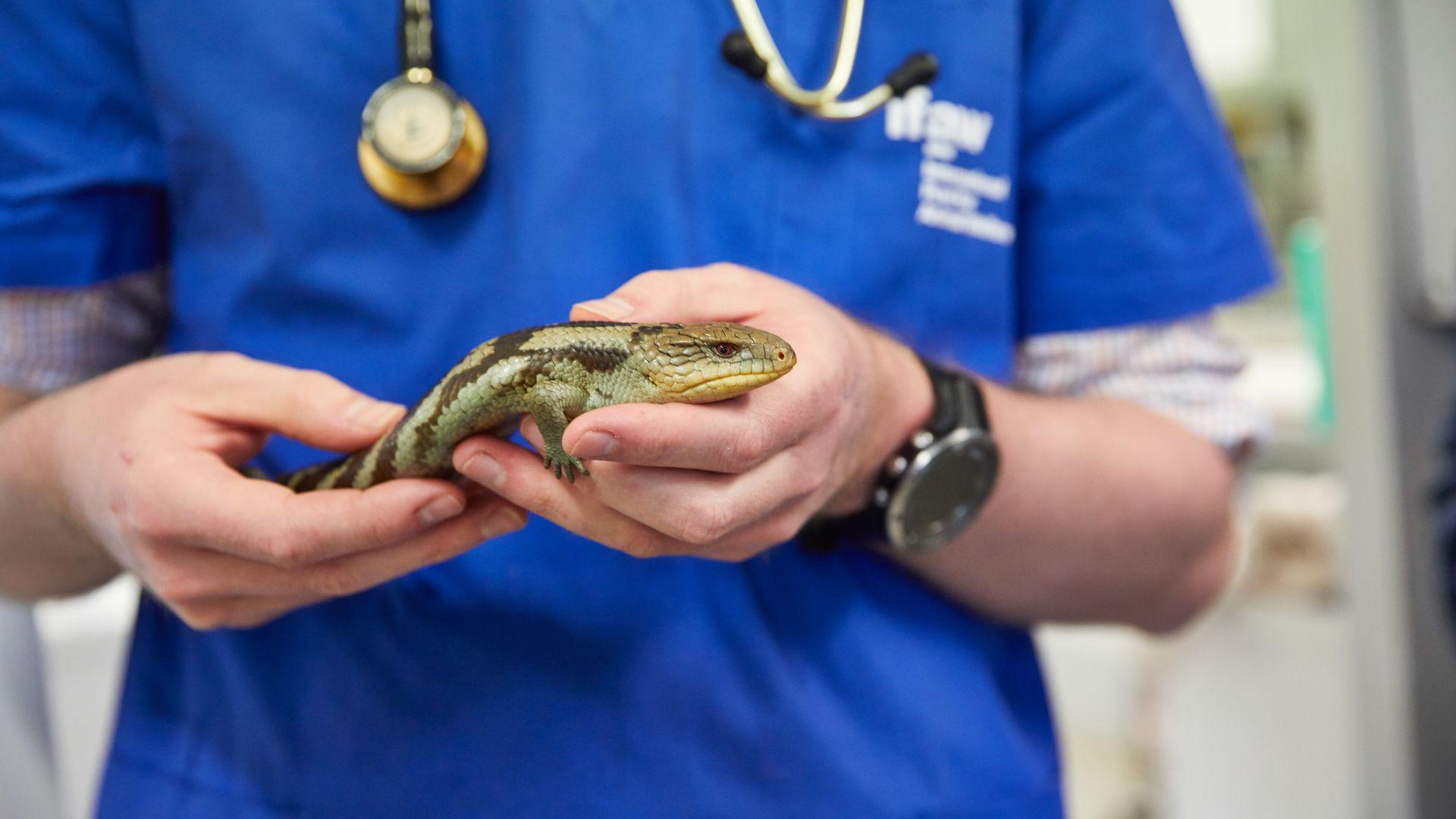
Key Takeaway:
- Tokay geckos can suffer from various eye issues, including sunken eyes, red eyes, swollen eyes, and other infections. These issues can be caused by various factors, including infections, injuries, or environmental conditions.
- It’s important to seek veterinary care if you notice any signs of eye issues in your Tokay gecko. A vet can diagnose the issue and provide the appropriate treatment.
- Treatment for Tokay gecko eye issues can include antibiotics, eye drops, and surgery in severe cases.
- Prevention is also key, and owners can take steps to maintain a clean and appropriate environment for their geckos. These include:
- Maintaining optimal enclosure conditions.
- Providing a balanced diet.
- Avoiding sharp substrates that can cause eye injuries.
Geckos are fascinating creatures to have as pets but like any other living being. They can suffer from various health issues.
One of the most common health issues geckos face is eye infections, and Tokay geckos are no exception.
These infections can lead to sunken, red, and swollen eyes, causing discomfort and pain to your beloved pet.
However, the good news is that these eye issues can be treated and prevented with proper care and treatment.
This article will discuss the causes of Tokay gecko eye issues and infections and provide practical solutions for treating and preventing these issues.
Tokay Gecko Eye Issues
This refers to a range of conditions and infections that can affect the eyes of Tokay geckos.
These issues can cause discomfort, pain, and even blindness if left untreated. Some common signs of tokay gecko eye Issues include sunken, red, swollen, cloudy eyes.
Sunken Eyes
Sunken eyes are a common sign of dehydration in Tokay geckos. If your gecko’s eyes appear sunken, it may be a sign that it is not getting enough water or is suffering from an underlying health condition.
To treat sunken eyes, ensure your gecko has access to clean water and a humid environment. In severe cases, it may be necessary to seek veterinary care.
Red Eyes
Red eyes in Tokay geckos often indicate an infection or injury. Redness may also be accompanied by swelling or discharge from the eyes.
It is important to identify the underlying cause to treat red eyes, which may involve removing irritants from your gecko’s environment or treating it with antibiotics.
If your gecko’s condition does not improve, seek veterinary care.
Swollen Eyes
Swollen eyes in geckos can be a symptom of eye issues, such as conjunctivitis or blepharitis, which bacterial or fungal infections can cause.
Swollen eyes can also be a symptom of other medical disorders in geckos, such as metabolic bone diseases, shedding issues, or low vitamin A.
If you notice swollen eyes in your gecko, it is important to seek veterinary care to properly diagnose and treat the underlying issue.
Conjunctivitis
Conjunctivitis in geckos is an infection of the conjunctiva, which is the pinkish-red, fleshy part of the eye.
It is a bacterial infection that can be caused by dirty water or a dirty environment that harbors bacteria. Conjunctivitis can cause clouded eyes with discharge and puffy and swollen eyelids.
Corneal Ulcers
Corneal ulcers in geckos are a form of inflammation of the cornea, which is the outer layer of the front of the eye.
The primary causes of corneal ulcers in geckos are chronic inflammation, eyeball trauma, or a foreign body stuck in the eyeball.
This condition can also be caused by bacterial or fungal infections, incorrect habitat setup, and poor hygiene.
Causes

Several factors can cause eye issues in Tokay geckos. One of the primary causes is a lack of humidity in their environment, which can lead to dry eyes, ocular dehydration, and subsequent infection.
Another common cause is a bacterial infection, which can occur due to dirty water or a dirty environment that harbors bacteria.
Bacteria can cause inflammation of the conjunctiva, resulting in conjunctivitis. Poor husbandry practices, such as inadequate cage cleaning can also lead to bacterial infections.
Other possible causes include fungal infections, parasitic infestations, or physical trauma to the eye.
For example, scratches from sharp objects in the enclosure can lead to corneal abrasions which can then become infected. Additionally, stressed or malnourished geckos are more susceptible to infections and illnesses including eye issues.
Treatment And Prevention
Treatment and prevention are essential in managing Tokay Gecko’s eye issues. The earlier the issue is identified, the better the chances of recovery. The following measures can be taken to treat and prevent eye infections
Treatment
The primary step in treating eye infections in Tokay Geckos is to seek veterinary attention.
Depending on the severity of the issue, the veterinarian may prescribe antibiotic ointments or drops.
The medication should be administered as prescribed, and owners should avoid over-the-counter medications as they may cause more harm than good.
Eye infections caused by injury should be treated with appropriate antibiotics to prevent further damage.

Prevention
To prevent eye infections in Tokay Geckos, owners should maintain optimal enclosure conditions and hygiene practices.
A clean environment is essential for the gecko’s health and it is important to use a digital thermometer and hygrometer to maintain optimal temperature and humidity levels.
Owners should also choose substrates with care and avoid using anything sharp that can cause eye injury, such as gravel or crushed walnut shells.
Additionally, a well-balanced diet can prevent eye infections by keeping the immune system strong.
Summary
Eye infections in Tokay geckos can cause a variety of symptoms such as sunken, red, or swollen eyes.
These symptoms can be caused by several factors, including environmental stress, poor diet, and infection from bacteria or parasites.
Early identification and prompt treatment can help resolve the infection and highlight any other underlying health issues.
Treatment for Tokay gecko eye infections typically involves cleaning the affected area with a saline solution and administering antibiotic eye drops or ointment. In severe cases, surgery may be necessary to remove infected tissue.
Prevention is also key in avoiding eye infections, and owners should strive to provide a clean and stress-free environment for their geckos and a balanced and nutritious diet.

